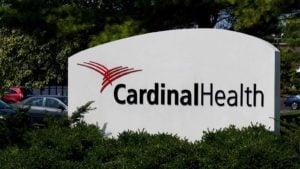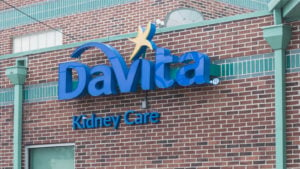While the broader stock marketsoars to new highs regularly, growth stocks have also regained their popularity among investors — and that has created many stocks to buy for investors. The Street seems to be delighted about positive updates on the economic front. Meanwhile, the U.S. Senate has recently passed a bipartisan $1 trillion infrastructure package.
Moreover, investors also appear to be reacting positively to the July consumer price index (CPI) figures that show an increase of 0.5% month-over-month, in line with analysts’ estimates. As the economy continues to rebound and inflation rates stay under control, many stocks might still march forward. Therefore, I would like to discuss seven top stocks to buy and hold forever.
Investors understandably fear that another economic downturn might be in the cards, or that a new wave of delta variant may constitute short-term headwinds. Others point out that many stocks currently trade at overstretched technical levels. Thus, Wall Street could take some profits off the table in the near term. Nonetheless, the long-term bull case remains strong for growth as well as dividend stocks.
The U.S. economy grew beyond its pre-pandemic levels in the second quarter, with the GDP up 6.5%. Consumer confidence soared to its highest level in 17-months in July, and the earnings picture keeps improving.
Long-term investors don’t need to worry too much about timing the market or buying at new highs. The stock market keeps on repeatedly highlighting the benefits of buy-and-hold investing since the pandemic became a part of our daily lives. So with that information, let’s take a closer look at these seven top stocks to buy and hold forever.
- Cardinal Health (NYSE:CAH)
- DaVita (NYSE:DVA)
- Lemonade (NYSE:LMND)
- Nucor (NYSE:NUE)
- Nvidia (NASDAQ:NVDA)
- Prologis (NYSE:PLD)
- Roper Technologies (NYSE:ROP)
Now, let’s dive in and take a closer look at each one.
Cardinal Health (CAH)

52-Week Range: $44.65– $62.96
Dividend Yield: 3.79%
Dublin, Ohio-based healthcare services group Cardinal Health provides customized solutions for hospitals, healthcare systems, pharmacies, surgery centers, clinical laboratories, and physicians’ offices. The company is one of the largest global logistics providers of wholesale pharmaceutical and medical products.
Cardinal Health released fourth-quarter and fiscal year 2021 results in early August. Top line increased 16% year-over-year (YOY) to $42.6 billion. However, non-GAAP net profit declined 26% YOY to $227 million. Non-GAAP diluted earnings per share (EPS) also retreated to 77 cents, representing a 26% decline from $1.04 in the prior-year quarter. Cash and equivalents ended the quarter at $3.4 billion.
On the results, CEO Mike Kaufmann remarked, “We’re disappointed with our fourth-quarter results. With the actions we’ve taken to date and our plans for fiscal year 2022, we feel confident in our strategy, and are encouraged by the tailwinds behind our growth areas and strong cash flow generation.”
While the bottom line significantly missed estimates of $1.20 per share, analysts indicate that an accounting adjustment linked to the pandemic is partially responsible for the earnings miss. CAH stock currently hovers at $51, down 4% year-to-date (YTD). The shares plunged 14% on Aug. 5 after the release of disappointing fourth-quarter results. As investors had already priced in pandemic-related headwinds, the recent pullback seems to double-punish the company for various measures taken in the past several months.
The shares trade at a forward price-earnings (P/E) ratio of 8.85 and current price-sales (P/S) ratio of 0.09, which implies a valuation for the worst-case scenario. Thus, CAH stock currently offers a reasonable entry opportunity for long-term investors.
DaVita (DVA)

52-Week Range: $80.85 — $136.48
Out next stock is a healthcare name favored by Warren Buffett. Denver-headquartered DaVita offers dialysis and related lab services to patients across the country who need this treatment on a regular basis.
DaVita announced Q2 results in early August. Consolidated revenue came at $2.917 billion, and operating income was $490 million. Diluted earnings per share was $2.64, up 63.0% from the prior year diluted earnings per share from continuing operations.
CE) Javier Rodriguez cited, “..we accelerated our investments in integrated kidney care capabilities designed to improve patient outcomes, coordinate care, and lower overall costs. We have grown the number of patients under value-based care arrangements to approximately 10% of our U.S. dialysis patient census, and we expect to see significant growth in our integrated kidney care business over the next year.”
Year-to-date (YTD) the stock is up around 11%, and hit a record high in recent days. DaVita shares are trading at 14.62 times consensus forward P/E and 1.31 times sales. Interested investors could consider buying around these levels. Like many healthcare names, DaVita runs a recession-proof operation with a cash generating business model.
Lemonade (LMND)

52-Week Range: $44.11 – $188.30
New York-based financial technology (fintech) group Lemonade offers a digital and artificial intelligence-based platform for various types of insurance products, settling claims, and paying premiums.
Lemonade released Q2 2021 results in early August. Total revenue fell 6% YOY to $28.2 million. Net loss widened to $55.6 million, compared to $21 million in the prior-year quarter. Net loss per diluted share stood at 90 cents, while cash and equivalents ended the quarter at $1.09 billion.
The company claims to enhance the consumer experience in the insurance industry by aligning its financial incentives with those of customers better than traditional insurance firms. Lemonade collects a fixed percentage of customer payments and transfers the rest to reinsurers that accept policy risk in exchange.
As a result, management eliminates the incentive to not pay claims from its business model. The company is currently expanding into life, auto, and pet insurance.
The global insurance industry is estimated to be worth more than $5.8 trillion. While second-quarter results may look gloomy for a stock that currently trades at 50 times sales, LMND stock still has plenty of upside potential. The shares trade at $72, down about 61% from their record high in mid-January.
LMND stock shares have also shed nearly 41% YTD. While Lemonade remains a speculative stock, the recent pullback offers an opportunity for long-term investors to buy the shares at a significant discount. The company could also find itself a takeover candidate.
Full story on InvestorPlace.com




Leave a Comment